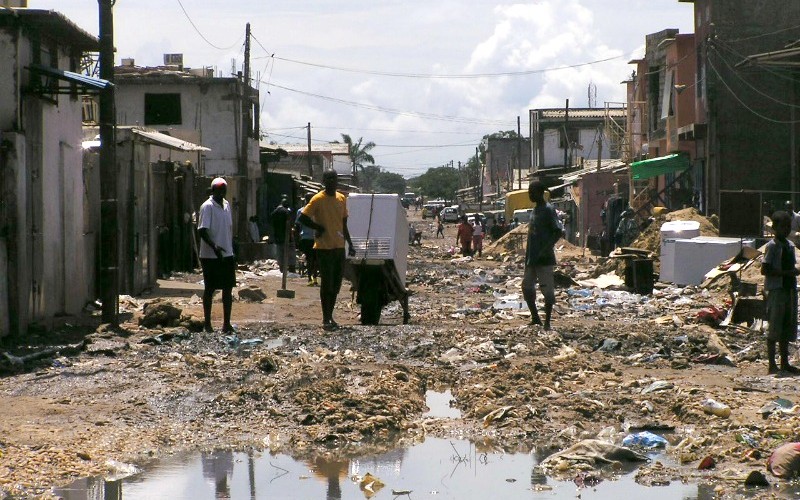Theroux Paul. The Last Train to Zona Verde: My Ultimate African Safari, Houghton-Mifflin-Harcourt, New York, 2013 (353pp. $27)
Nobody has demonstrated more flair, courage and persistence in a life of travel than Paul Theroux, and nobody in our vast travel literature has managed to spend almost 50 years sweating bullets alone and in far away places, most of them incoherent or nearly so, dangerous, often filthy, sometimes infused with super-reality, while at the same time managing to commit to paper his own indomitable and incisive intelligence, wit and, at times, cranky idiosyncrasies. In 15 books of nonfiction, some of them world classics, Theroux has pursued his own agenda, becoming the genuine article. Africa was always his inspiration and muse.
As Theroux tells us in his book “The Last Train to Zona Verde”, Africa had been his deliverance as a young Peace Corps teacher in Malawi, an experience he describes as a liberating embrace during which he felt, upon arrival, a sense of relief, happiness, and possibility. At this time, during the mid-1960s, Africa was in many ways still remote and rural, and its wildlife largely intact. In his 20s, Theroux traveled up and down Malawi, and to the Lower Shire River, a tributary of the Zambesi. He married and went on to visit Uganda, Kenya, Congo, Nigeria and Ghana. His first child was born in Africa. Moreover, Africa had given Theroux a sense that he was a lucky traveler. After all, he had been in awful places and had taken foolish risks, and survived. What more could a traveler want?
“The Last Train to Zona Verde” is a great book, measured by any standard. With Theroux’s having nudged just past 70 years old his book is a remarkable testament to his physical stamina and psychological will. Zona Verde is also, alas, a testament to an Africa that has passed away, changed forever by hopelessness, government corruption and slaughter; where the people have found themselves crushed into unlivable, dirty, chaotic, violent and dusty mega-cities; and where they say, “We are hopeless, sir,” as they extend their hands, appealing for money.
Theroux asks himself, “Why should any of them care about an aging white man asking nosy questions and scribbling their answers in his notebook?” And this says nothing about the wildlife increasingly under attack by poachers, encroached upon by hungry humans, herded into enclosures called “National Parks”, which are nothing more than staggeringly haunted zoos where wealthy Americans and Europeans enjoy the comforts of luxury lodges. Having made an epic journey from Cairo to Caper Town (recounted in the monumental “Dark Star Safari”), Theroux proposed in this book to travel the opposite (western) coast of Africa from Cape Town, up through Namibia and war-torn Angola, on to West Africa and, perhaps Timbuktu. Beginning in Cape Town, Theroux visits a number of shantytowns and “homelands” where hundreds of thousands of poverty-stricken “coloreds” and “blacks” still live in de facto apartheid conditions—at war with the dust, AIDS and new politicians like Julius Malema, boisterous president of the African National Congress Youth League, whose racist anti-white, anti-science and proto-fascist rantings served as a backdrop to a country strangled by its own lack of direction.
By bus (stations streaming in garbage fumes) through the coastal uplands toward Namibia, across the border and through the German-colonial town of Windhoek, Theroux is undaunted by bad food, monotonous desert landscapes and pushy customs officials. But rolling north across the Angolan border, he finds only twisted wrecks of car crashes; towns clogged with yellow sludge washed from sandy, eroded cliffs; tidemarks of litter and garbage; a poisoned landscape replete with cheated, despised and un-accommodated people, of seemingly unfixable blight. Angolans, Theroux writes, “lived among garbage heaps, plastic bottles, soda cans, torn bags, broken chairs, dead dogs, rotting food, indefinable slop and their own scattered twists of excrement.”
To be sure, there are bright spots—schools run by dedicated teachers, most of them foreign, NGO aid personnel administering effective programs, students here and there not pulverized by despair. He feels the old sense of liberation in bush settlements like Tsumkwe in northeastern Namibia, where the light and heat allow one to breathe. But even there he finds the “old” Ju/’hoansi people (sometimes called Bushmen) reduced to cultural depravity, existing on junk food and corn sugar, often drunk on cheap alcohol. And, in a major aside, he journeys to a luxury safari camp deep in the Okavango Delta, where the ultra-rich fly in to ride elephants for five days at $5,000 per day.
Taking a hard look is what Theroux does best. And in “Zona Verde” he does his best. One hard look he takes is at the Chinese presence in Angola, where every major project has the Chinese imprint—a new colonialism dominated by oil concessions and political influence, just like the old Victorian days, save for the undaunted ruthlessness of the Chinese and their ultra-materialist ways. In Luanda, the Angolan capital, one observant resident tells Theroux, “This is what the world will look like when it ends.” Why should we doubt it? In the end, Theroux asks himself, was it worth it? What interest should we have in this horror? Theroux concludes without pessimism, sure however that Africa’s present isn’t much different from that present (much more subtle) in the rest of the world—diminished resources, vanished work, urban blight.
According to the dictionary, “ultimate” means last in a progression. Bless Paul Theroux for bringing us the truth, even if this is has last word from Africa.


